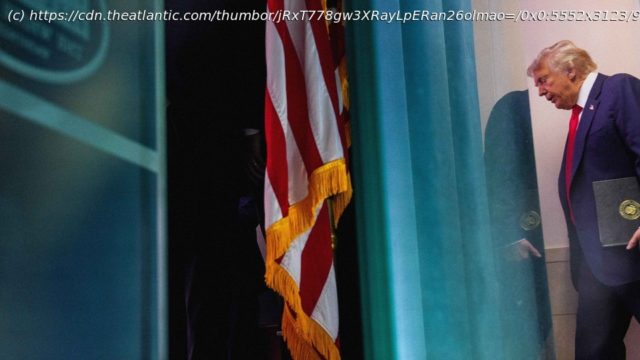The president will likely find that broad emergency powers do not give him free rein.
Washington, D.C., more than any other city in the country, presents President Donald Trump with the opportunity to meddle in the minutiae of municipal governance. Even in the capital, though, his powers are far from limitless. And the chasm between Trump’s sweeping plan to “clean up” D.C. and his actual authority over the city sets up a stark choice for the president: He can either settle for a significantly diminished version of the kind of change he desires or attempt to push the bounds of the law.
On Monday, Trump announced that he would federalize the city’s police department, deploy the National Guard, and dispatch hundreds of federal officers to patrol the nation’s capital, pledging to address its “crime, bloodshed, bedlam, and squalor.” Trump set a high bar for himself during a press conference in which he promised to, among other things, get rid of D.C.’s “homeless encampments” and “slums,” revoke the city’s cash-bail system, end its so-called sanctuary-city policies, increase penalties for youth offenders, and even fill potholes with fresh asphalt. “Our capital city has been overtaken by violent gangs and bloodthirsty criminals, roving mobs of wild youth, drugged-out maniacs, and homeless people,” he said yesterday at the White House. “And we’re not going to let it happen anymore. We’re not going to take it.” But Trump is likely to find that even this seizure of broad emergency powers does not give him free rein to remake the city to his liking.
The 1973 Home Rule Act, which allows a president to take over Washington’s police force during an emergency, also sets a limit on how long this kind of federalization can last. Under that law, Trump has a maximum of 30 days to maintain control over the Metropolitan Police Department—hardly enough time to conduct a major revamping of policing tactics and enforcement priorities. (The 1973 law actually limits the White House’s authority to 48 hours, allowing an extension to 30 days only after the president has notified Congress why such an accommodation is necessary.) Extending the federalization, which began yesterday, past a month would require an act of Congress. Democrats, whose votes Trump would likely need to pass such a law, have already blasted his actions as those of a would-be authoritarian.
Washington’s attorney general, Brian Schwalb, has denounced Trump’s moves as “unprecedented, unnecessary and unlawful,” challenging the president’s claim that D.C.’s crime levels constitute an emergency. “There is no crime emergency in the District of Columbia,” Schwalb wrote yesterday on X. “We are considering all of our options and will do what is necessary to protect the rights and safety of District residents.” Like many other cities, D.C. experienced a spike in crime during and immediately after the COVID-19 lockdowns but has since seen numbers drop. Homicides are down 12 percent so far this year compared with the same period last year, following a 31 percent decline in 2024, according to MPD. Violent crime is down 26 percent as of Monday, MPD reports, after a 35 percent drop last year.






